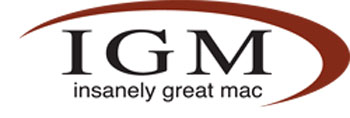Linux to Supersede Mac OS as # 2 Desktop OS?
August 11th 2004
Will Linux take over from Mac OS as the # 2 preferred desktop OS? Linux OSes may be poised to do just that, according to HP Linux Marketing Communication Manager Jeffrey Wade, quoted in an article at Linux Insider
"We're not capturing Mac users and migrating them to Linux," Wade said to TechNewsWorld. "What we're seeing here is the market share for the Linux desktop, which is primarily an alternative to a Windows desktop, just starting to grow and [overtake] Apple's market share."
In fact, HP expects Linux to overtake Mac OS this year, if Wade is to be believed. Some analysts argue that Linux has already pushed Apple into third spot. One Linux distributor argues that Apple is being "overwhelmed by the numbers."
Another factor which puts Linux in front of Mac, as well as Windows, is the price:performance ratio. Cheap x86 hardware and a free or inexpensive OS means Linux is viable for business desktops as well as server environments.
But that doesn't mean Linux has the desktop market to itself in consumerland or in small business. In developing countries, Gartner Group estimates, perhaps 90-95% of desktops are running a pirated copy of Windows. The white boxes themselves are mostly sold without an OS. Gartner further argues that although Linux may be on the hard drives of 7.5% of desktops in 2008, perhaps as little as 3.5% will actually be running the OS.
The growth market is notebooks, and HP hasn't overlooked this by offering Suse Linux and Open Office. Removing MS Office and Windows from the equation makes the notebook around $360 cheaper.
Analysis: It reads too much like an ad for HP's desktops and notebooks. But Mac OS and Linux shouldn't be competitors; they really occupy the non-Windows space and offer serious alternatives to the mainstream Windows XP and, in future, Longhorn.
It's extremely hard to get a fix on the desktop numbers for Linux though: how many users download it and install it on their personal machine? How many PCs equipped with Linux at retail actually end up using it? (i.e., someone might a buy a cheap PC merely to run a pirated version of Windows on it). There are also probably around 30 million desktops running some flavor of Mac OS - is Linux really becoming that widespread? Linux still doesn't do particularly well on the internet hit counter. Moreover, I can honestly say I haven't seen too many Linux installations on desktops among my non-techie acquaintances. To most people, Linux still elicits a big, "What?"
